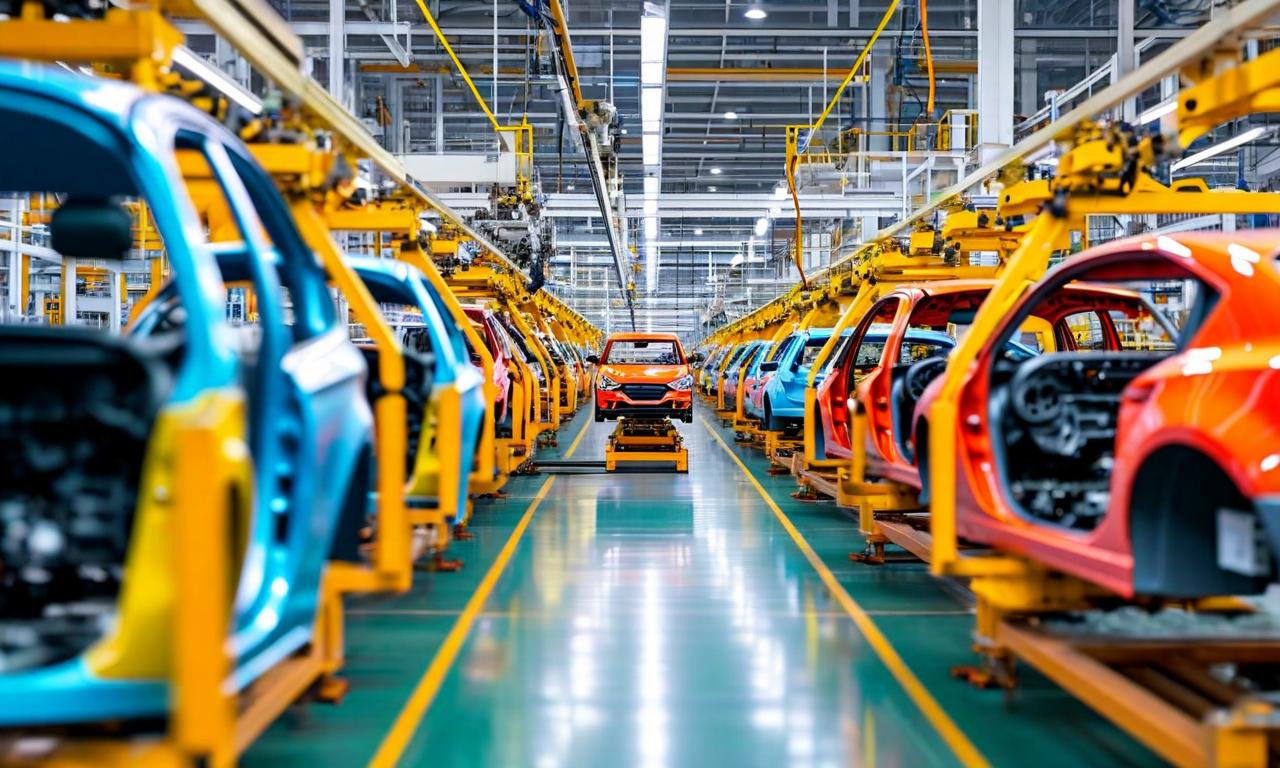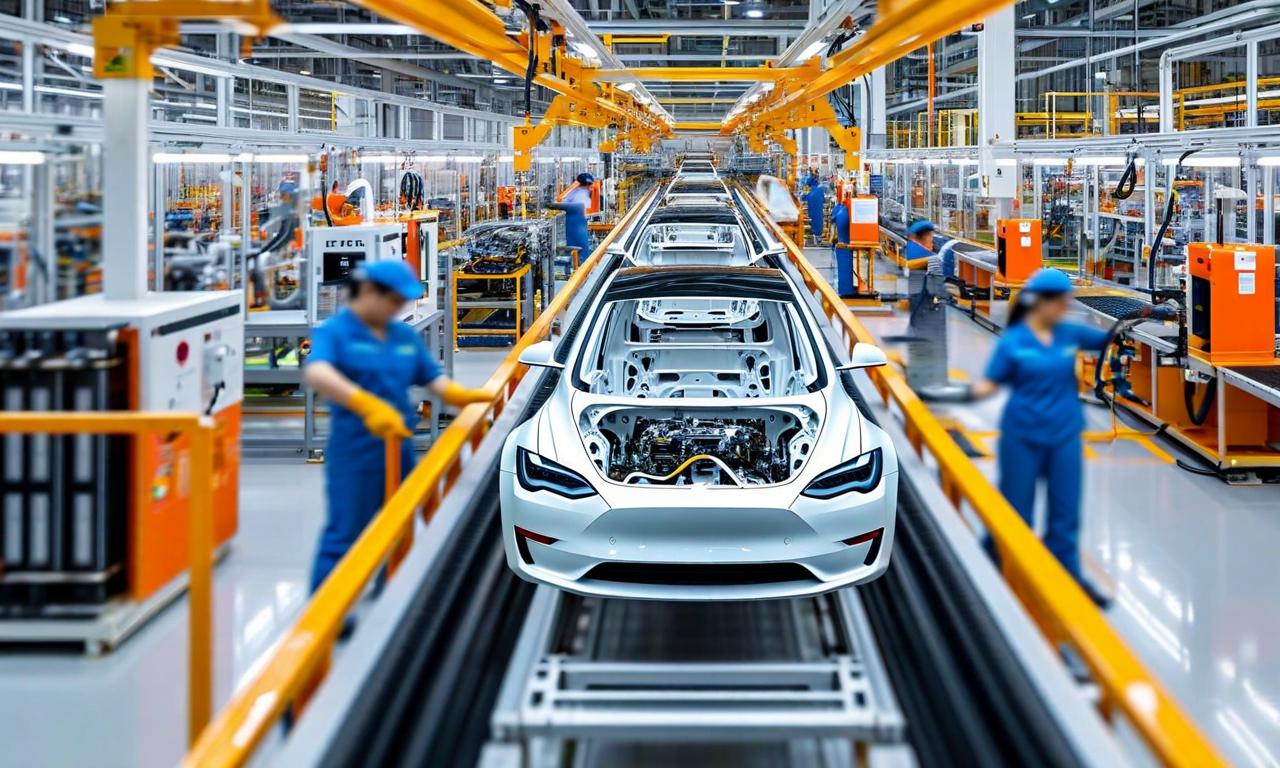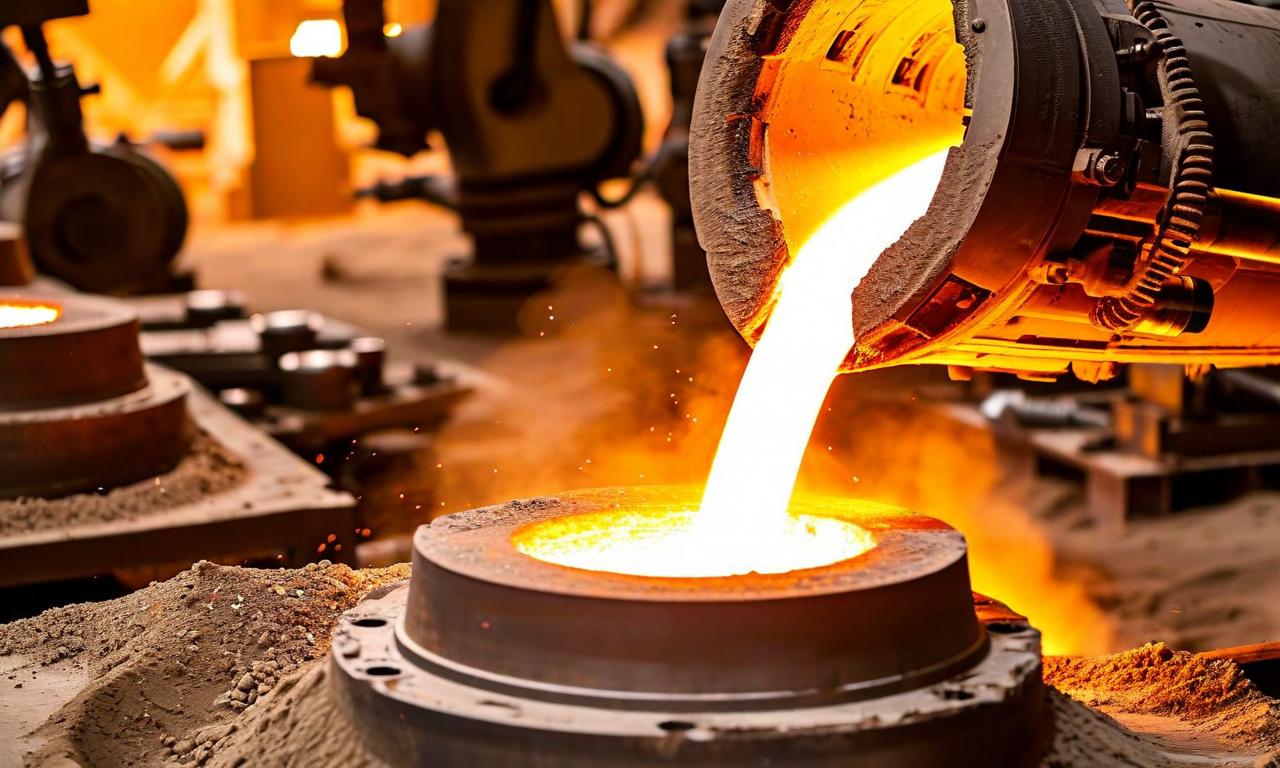Retail Investors Trim Auto Stock Holdings Despite GST Benefits and Festive Demand
Retail investors have reduced their stakes in 12 out of 15 auto stocks during the September quarter, despite the sector benefiting from GST reforms and strong festive season demand. Maruti Suzuki saw a notable decline of nearly half a percentage point in retail holdings. Mahindra & Mahindra was the exception, with increased retail investor holdings. Institutional investors showed different behavior, with mutual funds accumulating auto stocks. The auto sector has benefited from GST reforms, with tax rates reduced to 18% for various vehicle categories, leading to lower prices and record-breaking festive season demand. The auto components sector is projected to grow from $59 billion to $89 billion by 2030. Analysts express caution about demand sustainability and potential impacts on sales after initial tax reduction benefits wear off.

*this image is generated using AI for illustrative purposes only.
In a surprising turn of events, retail investors have reduced their stakes in the majority of auto stocks during the September quarter, despite the sector benefiting from GST reforms and strong festive season demand. This shift in retail investor sentiment comes at a time when the auto industry is experiencing significant changes in taxation and consumer behavior.
Retail Investors' Exodus
Retail investors, typically individual investors who buy and sell securities for their personal accounts, have shown a clear trend of reducing their exposure to the auto sector. The data reveals:
- 12 out of 15 auto stocks saw a decrease in retail shareholding
- Maruti Suzuki, India's largest carmaker, experienced a notable decline of nearly half a percentage point in retail investor holdings
- Other major players like Tata Motors, Hero MotoCorp, and Bajaj Auto also witnessed a reduction in retail investor stakes
- Mahindra & Mahindra stood out as the sole exception, where retail investors increased their holdings
Contrasting Institutional Behavior
While retail investors were selling, institutional investors showed a different approach:
- Mutual funds accumulated auto stocks during the same period
- Foreign institutional investors (FIIs) displayed mixed sentiment, reducing stakes in some stocks while increasing in others
GST Reforms and Market Dynamics
The auto sector has recently benefited from significant GST reforms:
| Vehicle Category | Old GST Rate | New GST Rate |
|---|---|---|
| Small cars | 28.00 | 18.00 |
| Two-wheelers (up to 350cc) | 28.00 | 18.00 |
| Commercial vehicles | 28.00 | 18.00 |
| Auto components | Various rates | 18.00 |
These tax reductions have led to:
- Lower vehicle prices
- Record-breaking festive season demand
- Projected growth of the auto components sector from $59.00 billion to $89.00 billion by 2030
Analyst Concerns
Despite the positive indicators, analysts express caution:
- Concerns about demand sustainability post-festive season
- Uncertainty regarding consumer behavior once discounts are withdrawn
- Potential impact on sales after the initial boost from tax reductions wears off
Industry Outlook
The auto components sector is poised for significant growth:
- Projected to reach $89.00 billion by 2030
- Companies expected to benefit from reduced input costs
- Improved supply-chain efficiency anticipated
While the GST reforms and festive season have provided a short-term boost to the auto sector, the reduction in retail investor holdings suggests a cautious approach from individual market participants. As the industry navigates through these changes, the contrasting behaviors of retail and institutional investors highlight the complex dynamics at play in the auto market.
The coming months will be crucial in determining whether the current demand surge translates into sustained growth for the sector, or if the concerns raised by analysts materialize into challenges for auto companies.
















































